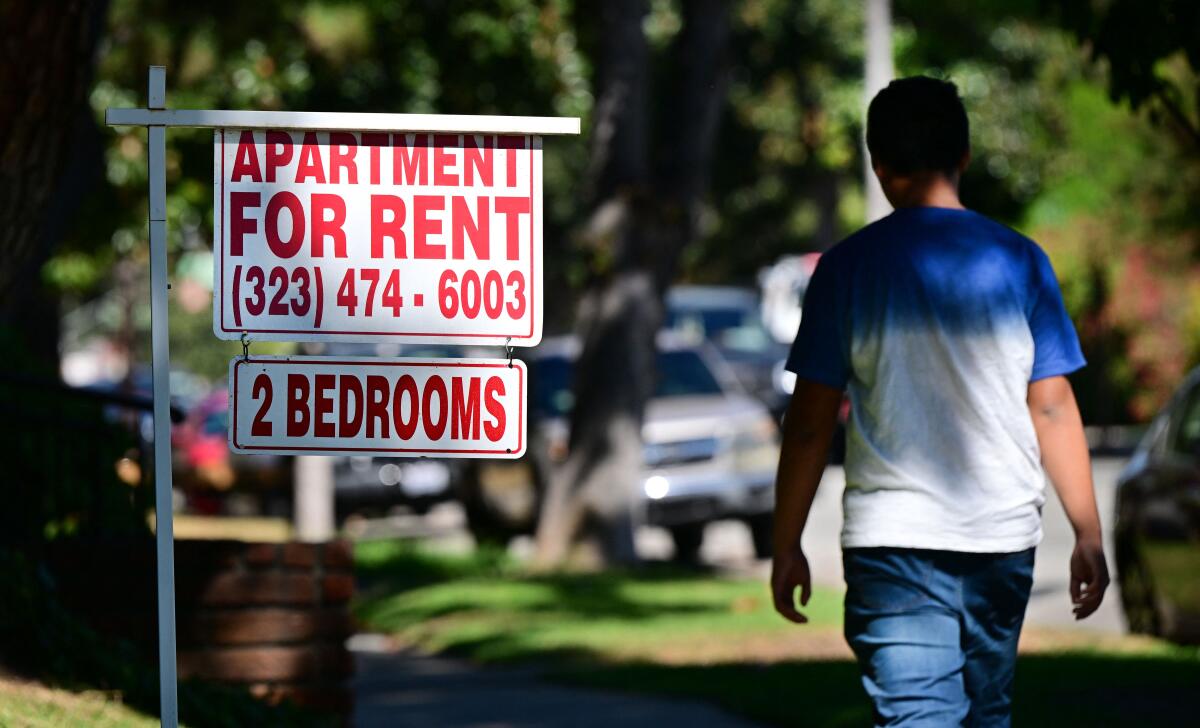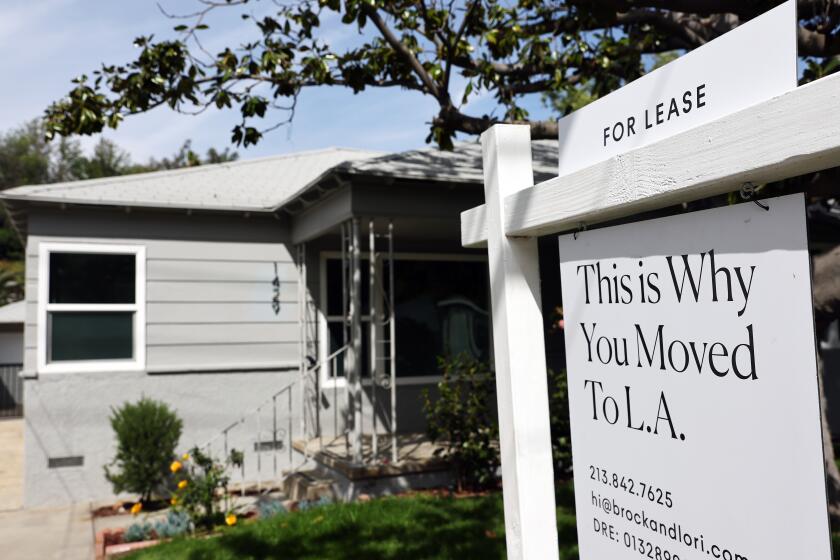Rents are finally falling in Los Angeles. But it’s still not enough for many

As Angelenos continue to suffer through a housing crisis, new data suggest that Los Angeles County’s notoriously brutal rental market may be cooling while rental prices continue to climb in some of the most populous regions of Northern California.
Rental prices were down 2.5% in Los Angeles County in February 2024 versus the same month a year before, according to data from Apartment List. Experts attribute the decline to a possible softening of demand amid population loss due to a recent exodus from parts of Southern California.
Despite the average drop in rent over the last year, some tenants say finding an affordable rental unit in the county is still a struggle.
Ashley Dingess, 36, thinks the data fails to reflect the reality on the ground. She and her fiance rent an apartment in North Hollywood and recently considered moving because of noisy neighbors.
“We’ve been looking and it doesn’t seem like rent has gone down whatsoever,” Dingess said.
Cities in the Los Angeles area are seeing lower rents as Orange County prices hold firm or even increase. Experts are calling for more tenant protections.
“We pay $2,950 right now, which is actually on the low end,” she said. Dingess, a content creator, got a deal during the pandemic on her two-bedroom, two-bath apartment.
This year, their landlord “tried to raise our rent significantly,” she said, and her rent did eventually go up by about half of the $500 increase the landlord had proposed.
Most buildings charge extra fees for add-ons such as pets and parking spots, but not their current building, Dingess said, making it difficult for her to leave.
“We have arguably some of the worst neighbors possible who party all night,” she said. Still, “it’s better to just stay put than move.”
California’s population exodus has been primarily attributed to the state’s high housing costs, long commutes, crowds, crime and pollution in urban centers. With the pandemic came an increased ability to work remotely — and avoid the big cities.
But the recent population changes have not been uniform across the state.
The recent data outline a trend: In Northern California, rents rose year over year in February for several counties by as much as 3.76%, while rents dropped in most large Southern California counties.
Los Angeles County’s 2.5% decrease was the second biggest of any in the state.
Alameda County, an exception to rising rents in the Bay Area, recorded rents falling 4.7% over last February, representing the 19th biggest annual drop in the U.S.
Nationwide, the 10 counties with the biggest drops in rent over last February were all in states that have had population booms but have also added housing in recent years: Florida, Alabama, Georgia and Texas. Census data shows that those same four states added more to their housing stock than California from 2020 through 2022.
Experts said an increased housing stock can keep rent prices down, even as population increases. They generally attribute rising rents in California to a lack of housing construction.
However, as the state’s population growth has stagnated, some believe that demand may cool and dampen rent growth.
Orange County was an exception to falling rent in Southern California, with rents up 1.6%.
Falling rents suggest either that “supply has finally caught up or that slower economic growth and/or population outmigration has weakened demand,” said Dowell Myers, a professor of policy, planning and demography at USC.
He added that the difference between Northern and Southern California could be indicative of demand being weakened more in the southern region than in the north.
“The best deals are occupied for a long time,” Myers said, as people are reluctant to leave units with below-market prices.
“Young renters are more impacted by price changes because they don’t have access to those deals” as they search for housing, he said.
Most U.S. states saw an influx of Californians amid a Golden State exodus but in 2022 more people from New Jersey, Illinois and Nebraska moved to California than the other way.
In North Hollywood, Dingess bemoaned the recent rainy weather, which she said she pays to avoid.
They are considering leaving. “If I wasn’t bound here for work, we would not live here,” she said.
“We’ve been contemplating moving to Europe,” she said. “The quality of life seems way better out there.”
She expects to leave the Golden State in the next five years.












